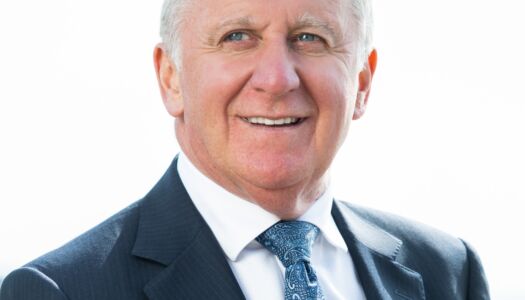Only in recent days we’ve seen the UK government announce a new £400m partnership with Bill Gates to advance clean energy technologies; the UK reveal its net zero strategy, which includes fully decarbonising power by 2035; and the UK Treasury publish a roadmap for sustainable investing.
And that’s just in the UK.
This acceleration of thinking around ESG and sustainable finance is reflected at industry level too – according to research from Deutsche Bank, ESG assets are forecast to increase exponentially to surpass US$100 trillion by 2028.
Ambitions to ‘build back better’ are certainly gathering pace, and, with COP26 – widely billed as the last chance saloon for nations to collaborate on tackling climate change – now underway, it’s a good opportunity to reflect on where Jersey sits in terms of its commitments to sustainable finance.
Progress
It’s now just over six months since Jersey Finance, with the support of Equilibrium Futures, launched its sustainable finance strategy and vision – a vision that Jersey would be recognised by clients, stakeholders and other partners as the leading sustainable international finance centre in the markets it serves by 2030.
Central to that vision was a pathway that had collaboration, upskilling and communication at its core – and it’s pleasing that, just over six months on since its launch, we have made good progress in implementing the report’s recommendations.
In terms of collaboration, a steering group bringing together key stakeholders has been established, which is facilitating greater participation among external bodies and forums in bringing together broad and complementary expertise.
Critically, this strategy is set against the backdrop of Jersey’s government setting itself the ambitious target of making the island carbon neutral by 2030 – so it’s been important for our strategy to be inclusive and sensitive to the efforts of the island’s leaders, regulators and the people of Jersey in realising that aim.
In addition, a report from a citizens’ assembly was published in the summer which made a number of wide-ranging recommendations that it considered would help Jersey meet its 2030 carbon-neutral targets – a number of which were pertinent to the finance industry and have been taken on board. A further debate around the work of this citizens’ assembly is due in the coming weeks, which will be important in maintaining momentum.
The output of a major project conducted by the Jersey Good Business Charter has also successfully brought together Jersey businesses, including financial services firms, to challenge and motivate in terms of upholding ethical and sustainable practice. ‘A Good Walk + mapping out the current landscape of Sustainability. Ethics and Good Business in Jersey’ aims to help local business leaders grapple with the soulful issues of their organisation’s purpose, as well as the more intellectual determination of strategy and policy. Its launch last week is well timed.
We also recognise that collaboration must extend beyond our shores, if Jersey is to play its part in tackling global challenges. That’s why we have been working to put Jersey on a pathway to membership of various international partnerships, including the UN-convened FC4S network.
This particular collaboration led us to participate in this year’s FC4S Assessment Programme – a framework designed to help finance centres conduct a sustainable finance stock-take in order to measure their alignment to the objectives of the Paris Agreement and the UN Sustainable Development Goals. This was an important step, which we had committed to take in the first year of our strategy implementation, to give us better visibility over our sustainable finance ecosystem and to provide us with a benchmark to measure progress in achieving our 2030 vision. The insights from this stocktake will be shared with industry over the coming months and will inform our actions going forward, as well forming part of the global financial centre data used by FC4S in support of collaborative policy making at COP26.
In terms of upskilling and capacity building, we’ve worked with industry to map out the current training landscape and identify any current skills gaps. This has led to enhanced access to specific training being delivered – including discounted courses through accredited providers such as CISI relating specifically to sustainable finance. In addition, ‘#BuildBackBetter’ – a key industry-led program delivered by KIT Consulting and The Potting Shed – was launched to help upskill the next generation of sustainable finance leaders and we have been pleased to support this welcome initiative.
We will continue to look for ways to improve access to skills and training, working with providers to ensure that our industry is equipped to meet the demands of clients in areas such as reporting, disclosure and the application of international standards in ESG.
We’ve also been able to bolster Jersey’s credentials as a robust, innovative and enabling sustainable finance hub. The Jersey Financial Services Commission, for instance, made changes over the summer to a number of its Codes of Practice to certified funds and funds service business, and the Jersey Private Fund (JPF) Guide, following a consultation, with the aim to counteract the potential for greenwashing by supporting sustainable finance through a commercially viable disclosure regime. This has helped us to ensure that our foundations for scaling up sustainable finance remain solid.
In addition, a piece of work undertaken with FinExtra earlier this year highlighted the growing synergies between sustainable finance and fintech innovation. We’ll be focusing more on innovation within sustainable finance service delivery over the coming months, with service providers increasingly tailoring their fund solutions to include new data-driven propositions, for instance, and developing new tools that deploy the latest technologies to collect, evaluate and report ESG data.
Working together
The strand that runs through all of this is the need to work together. Cooperation. Collaboration. Joined-up thinking.
An Intergovernmental Panel on Climate Change (IPCC) report published earlier this year made stark warnings about the fragility of our planet if we don’t act now, together.
The public and private sector cannot achieve widespread change on its own, and no one industry, firm, organisation or government has all the answers. While the concept of sustainability has moved manifestly into mainstream public consciousness, it remains to be seen whether this mass movement is shared by political leaders at COP26.
As far as Jersey is concerned, we will continue to work together with key stakeholders to maintain the impressive progress we have made so far in delivering our strategy – conscious both of our responsibility and our ability to leverage our industry’s expertise, reach and capital to turn words into actions and support the transition to an environmentally and socially sustainable economy, domestically and further afield.





